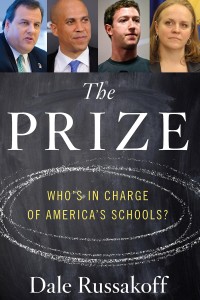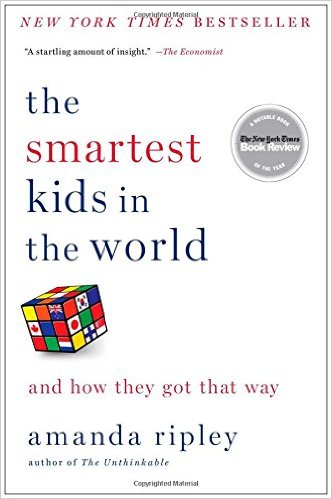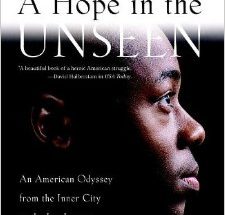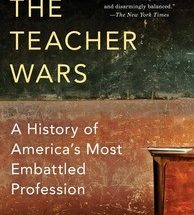On September 24, 2010, an unlikely trio of guests sat in black leather chairs on the stage of The Oprah Winfrey Show. In one chair was Facebook founder Mark Zuckerberg. To his left was the odd-couple political paring of Newark’s Democratic mayor, Cory Booker, and New Jersey’s Republican governor, Chris Christie. Together, the three were on Winfrey’s show to announce a plan that Booker claimed would serve as “a bold new paradigm for educational excellence in the country.”
The proposal involved a $100 million grant from Zuckerberg to the Newark school system that would be matched by funds from other philanthropists. With that money, Booker and Christie were to overhaul a Newark educational system which graduated less than half of its students.
 Recently shortlisted for the Lukas Book Prize, Dale Russakoff’s The Prize examines the plan, its implementation, and what went wrong along the way.
Recently shortlisted for the Lukas Book Prize, Dale Russakoff’s The Prize examines the plan, its implementation, and what went wrong along the way.
Beginning with a ride Christie and Booker took through Newark soon after the governor’s election in 2009, Russakoff chronicles, over the course of four years, not just what happened to that money, but also details the lives of several individuals struggling within the failing school system.
From the outset, it is clear that Booker and Christie, two rising political stars in their respective parties, were thinking big, perhaps too big. Russakoff writes, “Their stated goal was not to repair education in Newark but to develop a model for saving it in all of urban America.”
What that model would look like is an idea into which neither of the politicians appears to have put enough thought. Early on, they struggled to hire a “rock star” superintendent. Plans to close failing schools and relocate students were forced through over parent anger and teacher’s union resistance.
After an initial bubble of optimism, the tide of public opinion began to turn against the reformers. As the national spotlight moved away from the city, Christie, Booker, and their hand-picked education leader got mired in the complexities of attempting to change an institution with a $1 billion annual budget.
The central tension in The Prize concerns what model should be used to reform Newark’s school system. Zuckerberg, Christie, Booker, and their cadre of consultants envision a swift, transformational, top-down approach, but they soon ran into trouble with community organizers, teachers, and parents who felt left out of the process. This second group advocated for more bottom-up version of change, with power being given to schools and principals, and more attention being paid to the effects that policies have on individual students. While Russakoff doesn’t pick sides, she certainly illuminates the problems that come from the politicians’ and philanthropists’ heavy-handed tactics.
Though Zuckerberg, Booker, and Christie provide the book’s star power, the heart of the story comes from Russakoff’s focus on the individual teachers and students who seem to be forgotten by those holding the purse strings. When we are introduced to Princess Fils Aime (née Williams), she is a hard-working kindergarten teacher committed to strengthening the struggling public school where she works. Williams plans exhaustively and fights for her students to receive the services they need, but – ultimately – even she is frustrated by slashed budgets and bureaucratic obstacles. By the end of Russakoff’s reporting, Williams was doing something she promised herself she never would: teaching in a charter school.
Another example of the system’s failure comes through the story of Alif Beyah. A struggling middle-school student when we meet him, Alif admitted, “If I get thrown out of class, nobody finds out I can’t read.” Through the efforts of several committed teachers, Alif, a star basketball player, raised his reading level and entered high school with the chance to succeed. Once he left the cocoon of supportive teachers at his old school, however, he quickly fell behind. The last time we read about Alif, he was “posting videos of himself and his friends on Facebook in a haze of marijuana smoke.”
Russakoff’s immersive reporting, from the boardrooms of Facebook to the seats of political power in New Jersey to the kindergarten classrooms of Newark’s schools make for a surprisingly exhilarating, if ultimately depressing, read. Today, more than five years since the announcement on Oprah, all of the major political figures have moved on. Booker is a senator, Christie has recently ended his campaign for president, and Zuckerberg has learned a lesson; he is still investing in education, but is now focused on providing a web of services for all students, engaging parents and community leaders, and effecting reform from the bottom-up.



